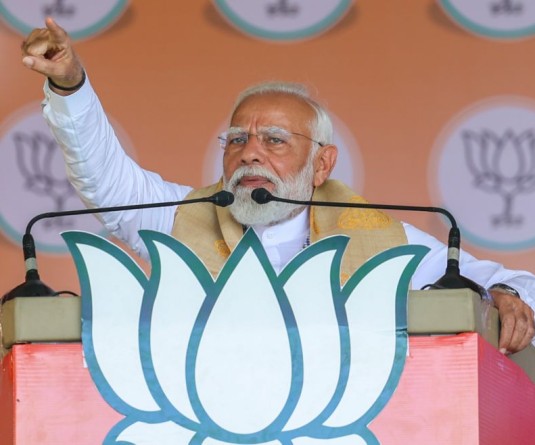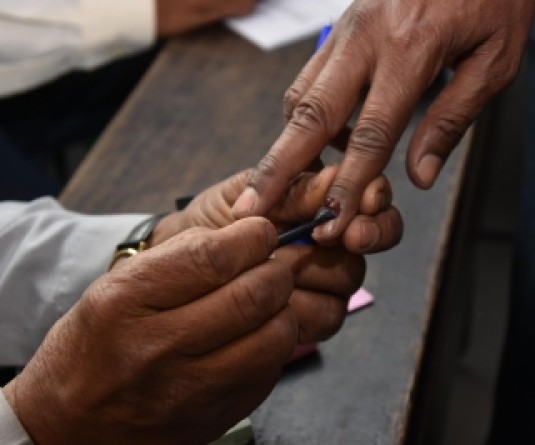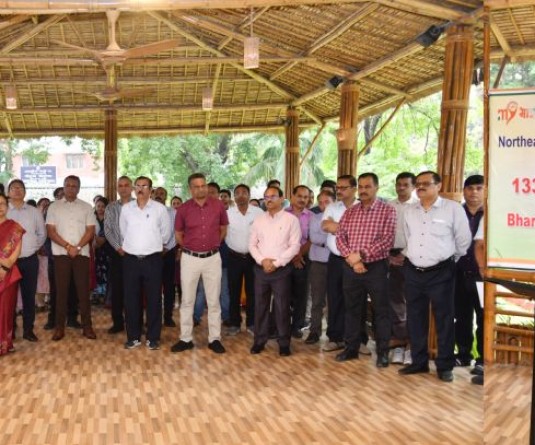
Imphal, May 18 (NNN): In a significant departure from the general understanding of the root of corruption in public places a lawmaker in Manipur has bitten off more than it can chew by stating that it is the people who entice bureaucrats and ministers on accepting bribes and not the other way round.
“Ministers and bureaucrats don’t ask money in exchange for jobs, it’s the people who bribe their way into jobs,” stated Manipur agriculture minister Ph Parijat Monday while opening a coaching program for civil services exam aspirants at the auditorium of the State agriculture department located in Sanjenthong near here. The 10-day coaching program which will be availed by about 40 job aspirants is being organized by the department of employee. Minister Parijat hails from CPI.
Hinting at the supply-demand mismatch, the minister encouraged unemployed youths of the state to appear for civil services exams conducted by UPSC in large numbers given the dearth of large-scale employment generating industries and private investments in the state.
A recent release by the directorate of employment exchange had put the figure of unemployed youths of the state for the month ending March 2011 at close to seven lacs. The number could be higher given the fact that large numbers of youths does not care to register with the employment exchange.
According to the minister, the number gets dramatic with the reluctance of youths to get into jobs in railways, banking, insurance sectors etc., where the youths of the state are underrepresented.
There is an increasing feeling in the intellectual circles, as also amongst the general populace, that the government is attempting to wash its hands off its duties of providing public goods and statement like this only appears to reinforce the belief.
Even before the popular-belief defying statement of the state agriculture minister on the reversal of the cause and source of corruption, unemployed austere youths – seething with anger and frustration over the criminalization of job market through political patronage – have questioned the credibility of political leaders and bureaucratic machinery if they are so openly vulnerable to bribe mongering.
Rather than formulating policy to attract investment in potentially job generating sectors like tourism and others, the role of the state government seems to have been relegated only to trading in corrupt practices of selling away public jobs to the highest bidders. The reference to chief minister Okram Ibobi Singh as Mr. ten percent by whistle blower Wikileaks recently only substantiates the rot in the system.
Adding fuel to the fire, Parijat said that there are not many jobs available in Manipur; the youths must therefore appear en masse in competitive exams conducted by central bodies rather than waiting for recruitment rallies for police or clerks in the state where they are often under-employed.
“Ministers and bureaucrats don’t ask money in exchange for jobs, it’s the people who bribe their way into jobs,” stated Manipur agriculture minister Ph Parijat Monday while opening a coaching program for civil services exam aspirants at the auditorium of the State agriculture department located in Sanjenthong near here. The 10-day coaching program which will be availed by about 40 job aspirants is being organized by the department of employee. Minister Parijat hails from CPI.
Hinting at the supply-demand mismatch, the minister encouraged unemployed youths of the state to appear for civil services exams conducted by UPSC in large numbers given the dearth of large-scale employment generating industries and private investments in the state.
A recent release by the directorate of employment exchange had put the figure of unemployed youths of the state for the month ending March 2011 at close to seven lacs. The number could be higher given the fact that large numbers of youths does not care to register with the employment exchange.
According to the minister, the number gets dramatic with the reluctance of youths to get into jobs in railways, banking, insurance sectors etc., where the youths of the state are underrepresented.
There is an increasing feeling in the intellectual circles, as also amongst the general populace, that the government is attempting to wash its hands off its duties of providing public goods and statement like this only appears to reinforce the belief.
Even before the popular-belief defying statement of the state agriculture minister on the reversal of the cause and source of corruption, unemployed austere youths – seething with anger and frustration over the criminalization of job market through political patronage – have questioned the credibility of political leaders and bureaucratic machinery if they are so openly vulnerable to bribe mongering.
Rather than formulating policy to attract investment in potentially job generating sectors like tourism and others, the role of the state government seems to have been relegated only to trading in corrupt practices of selling away public jobs to the highest bidders. The reference to chief minister Okram Ibobi Singh as Mr. ten percent by whistle blower Wikileaks recently only substantiates the rot in the system.
Adding fuel to the fire, Parijat said that there are not many jobs available in Manipur; the youths must therefore appear en masse in competitive exams conducted by central bodies rather than waiting for recruitment rallies for police or clerks in the state where they are often under-employed.





